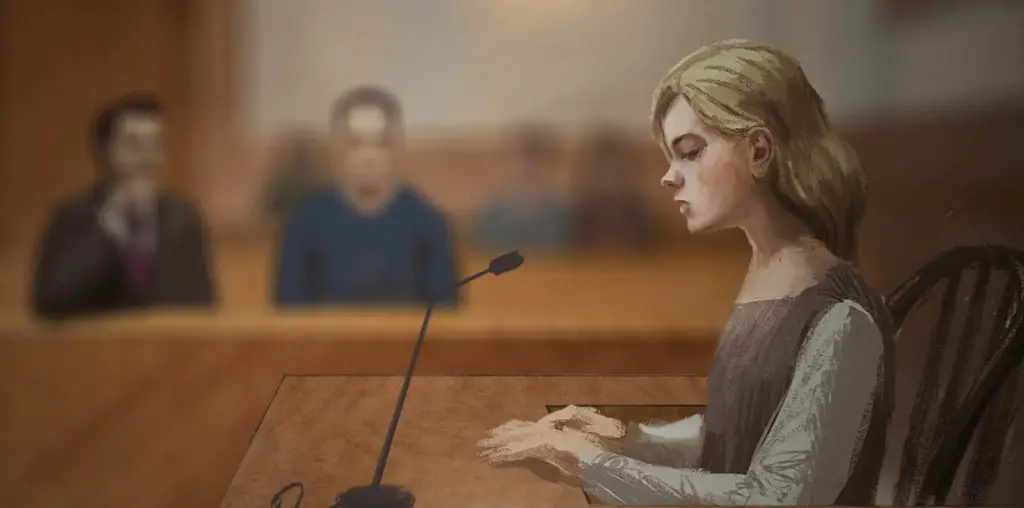
CRITIC DOCTOR EXAMINES: Lou Lumenick (nypost.com), James Berardinelli (reelviews.net), Jeff Vice (deseretnews.com), A.O. Scott (nytimes.com), Roger Ebert (Chicago Sun-Times), Mike Watt (filmthreat.com), Karen Heller (philly.com)
**** (out of 5 stars)
“Don’t make me angry,” warns Dr. Bruce Banner in Universal’s film “Hulk.” A few critics out there had better hope Banner avoids reading their negative film reviews. They won’t like him when he’s angry. Wait. Forget Banner. They made me angry!
“Hulk” is based on the classic Marvel comic The Incredible Hulk. Dr. Bruce Banner (Eric Bana) is accidentally zapped by gamma rays and a mutant gene inside him is awakened. When Bruce gets angry, he turns into a huge green 15 foot “angry man” filled with pure rage! When I first saw the movie trailer – I thought this CGI-Hulk was a geek. I was wrong and so are some critics.
Lou Lumenick (nypost.com) gripes, “The movie’s multiple failures significantly begin with the Hulk himself, a downright silly looking, computer-generated figure… lacks the expressiveness of the computer-animated Gollum in ‘The Two Towers,’ or even the dreaded Jar-Jar Binks.”
Jar-Jar Binks? For the love of God, Lou! Have you gone mad? You cannot compare the Hulk to that irritating, nausea inducing Jar-Jar Binks. This CGI-Hulk was a big surprise for everyone – after watching the trailer. The only time I thought the Hulk character fell short was during distant shots. The Hulk looked like a video game, leaping hundreds of feet at a time – and his pants seem to be self-preserving. But the close up shots? Brilliant!
James Berardinelli (reelviews.net) nailed it: “The face is fully expressive (there are some remarkable close-ups), the body moves realistically, and the interactions with real people and objects are flawless.” Jeff Vice (deseretnews.com) also said, “Let’s just say that many of those who have been carping about the CGI special effects created by Industrial Light and Magic will eat their words when the green Goliath is finally seen in action.”
Unfortunately, Jeff – we have critics like Lou Lumenick who would sooner puke out words like Jar-Jar Binks instead of eat them. Then again, Binks is about as appetizing as Lumenick’s review.
A.O. Scott (nytimes.com) complained about director Ang Lee’s split-screen filming that gave the effect of a comic book. “In nearly every case the effect is to dilute the action rather than intensify it. When there is nothing very interesting to look at, shooting it from a lot of angles at once is not very helpful.”
I believe the opposite, Scott. Those average scenes would normally bore us, but the split screens kept our interest and added a blend of artistry – capturing details of colors, patterns, facial expressions, eyes, faces, etc. It was done beautifully. It brought us closer to the action, too. I think “Spider-Man” would have benefited greatly with this format. It’s not easy to do, though.
Roger Ebert (Chicago Sun-Times) said, “After countless directors have failed, Ang Lee figures out how split-screen techniques can be made to work. Usually they’re an annoying gimmick, but here he uses moving frame-lines and pictures within pictures to suggest the dynamic storytelling techniques of comic books.”
The film’s overall story came under fire by some critics because the movie wasn’t, uh, dumb. Mike Watt (filmthreat.com) complains, “Somewhere in the middle of ‘The Hulk’ is a big, dumb, noisy movie trying desperately to get out.”
Uh, Mike? There were plenty of dumb moments to satisfy your popcorn crave like when the Hulk rampages San Francisco. However, revealing the underlying story behind the Hulk made the movie that much more interesting.
Ebert observes, “It is not so much about a green monster as about two wounded adult children of egomaniacs…These two dueling oedipal conflicts are at the heart of ‘Hulk,’ and it’s touching how in many scenes we are essentially looking at damaged children.” Susan Granger (susangranger.com) adds, “It cleverly fuses pop culture with psychodrama.”
The casting is good and I actually liked Nick Nolte as the evil David Banner (Bruce’s dad) especially in that last scene with Bruce. Karen Heller (philly.com) said, “Lee stages an astonishing stage-like scene between the two that’s straight out of King Lear.”
James Berardinelli summed the movie up best: “‘Hulk’ represents the most involving superhero motion picture since ‘Superman’ soared skywards in 1978. By taking its time to develop characters and situations, ‘Hulk’ does what so many action/adventure movies fail to do – allow us to really feel for the protagonists.”
The Hulk and I may be angered by some movie critics, but the film should please most audiences.
— CRITIC DOCTOR
